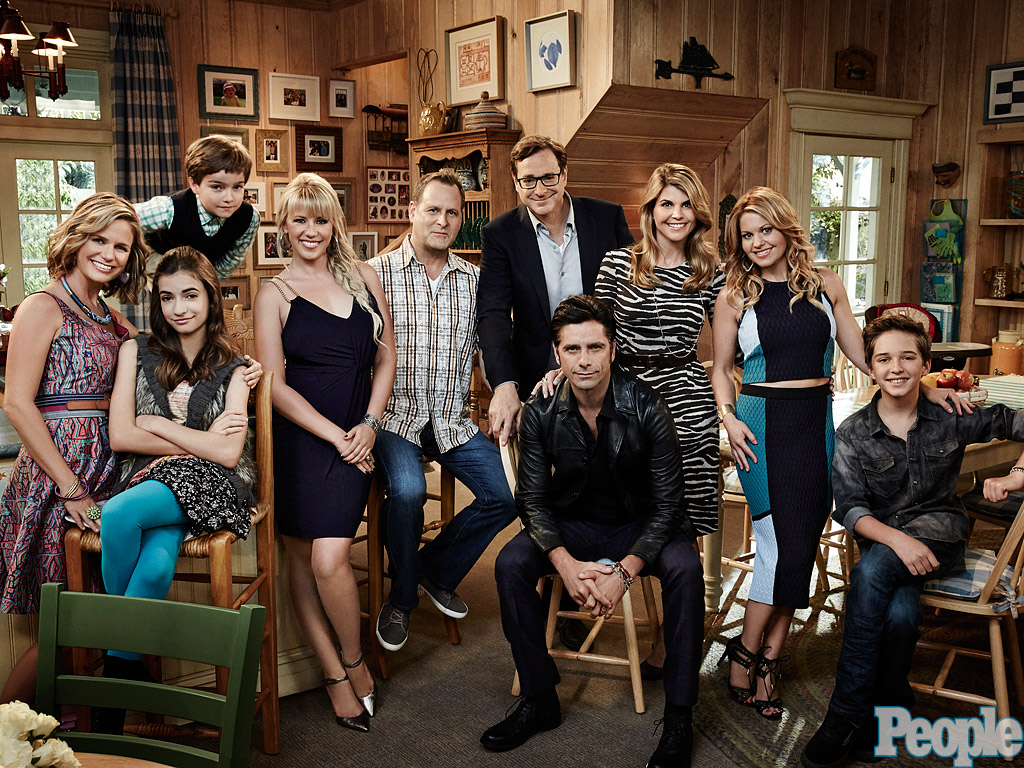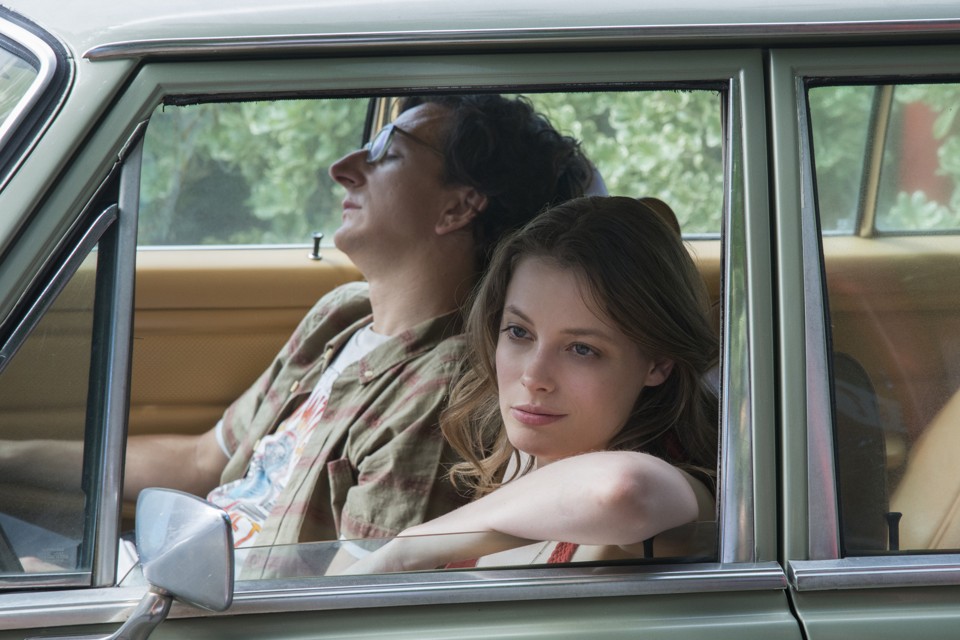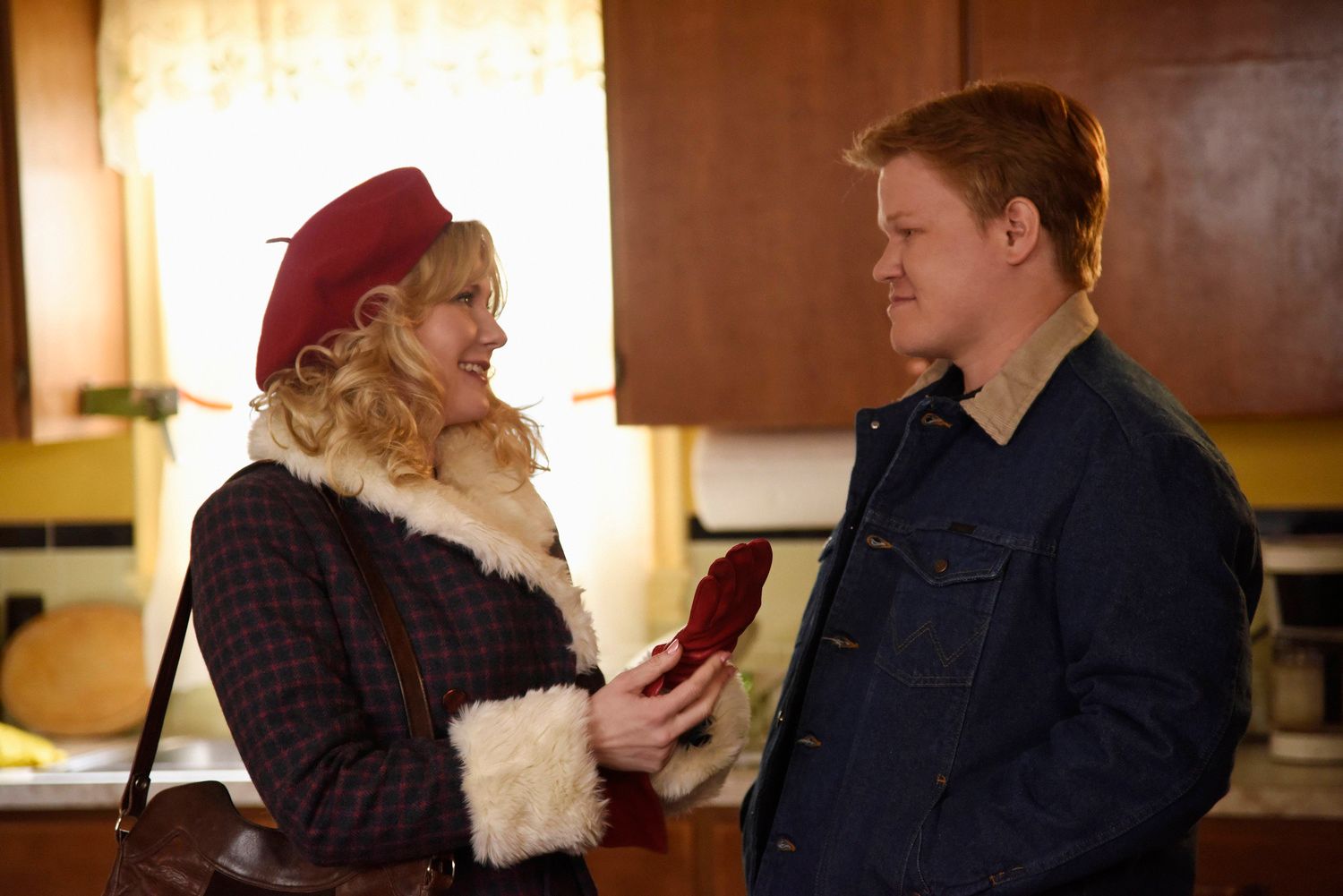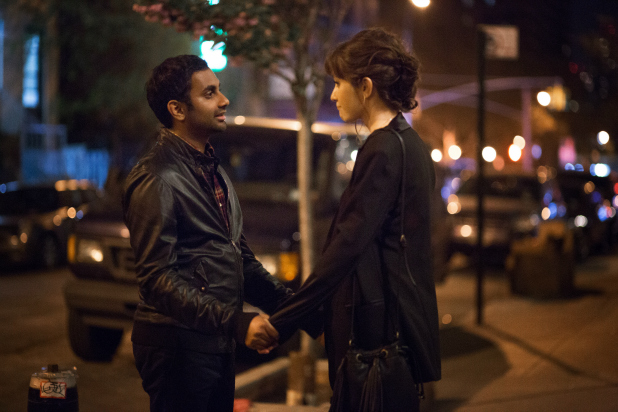Best-of lists are kind of dumb. Right? I love them, but they’re kind of dumb, especially in our era of “peak TV.” There’s so much television out there, covering so many different styles and genres and tastes, that who’s to say that any one person’s “best 20 TV shows of 2016” will have any bearing on you? I mean, don’t get me wrong, I totally compiled a top 20 list that I’m going to post somewhere and I spent weeks analyzing it and mulling it over but at least like, I’m acknowledging it’s dumb, right? Right.
Anyway, even if I don’t think “top TV lists” are necessarily the right way to spotlight the best that TV has to offer, I do think it’s nice to look back at the year in television and look at some of the great stuff it’s whipped up over the past 12 months. And I always think the “Best TV Episodes” lists do a little bit better of a job of capturing some of the joy that watching really great TV gives you. No matter how much Netflix wants to change it, TV is still an episodic medium, and no other medium quite matches the feeling of watching a really perfect episode that captures everything you love about a show in a mere ~30–60 minutes. So here’s some of the 2016 TV episodes that did just that for me.
Superstore — “Labor”
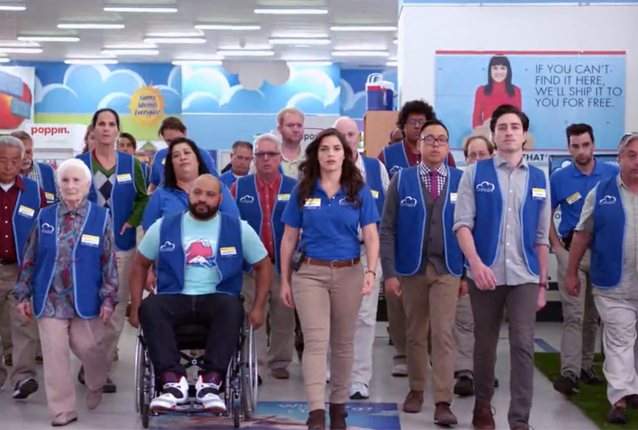
Superstore is a quietly strong little sitcom consistently plugging away Thursday nights on NBC. (Shameless plug: I wrote about why I think the show is great and underrated for VICE last month and you should totally read it.) The show started off seeming kind of like “generic workplace sitcom set in a big-box store”, but gradually distinguished itself with a compelling cast of characters and a subtle-but-effective focus on workers’ rights, and the show’s first season finale “Labor” felt like the major turning point in that direction. The episode finds teenage mother-to-be Cheyenne unexpectedly go into labor while on the clock, leading to store manager Glenn to give her two weeks of paid maternity leave — which gets him fired. The employees, angered at both their company’s lack of benefits and careless dismissal of their dedicated store manager, stage a walk-out, and although sitcom rules dictated that the walk-out be quickly remedied when the show returned in the fall, Cloud 9 has felt just a little bit more rebellious ever since.
Crazy Ex-Girlfriend — “That Text Was Not Meant For Josh!”
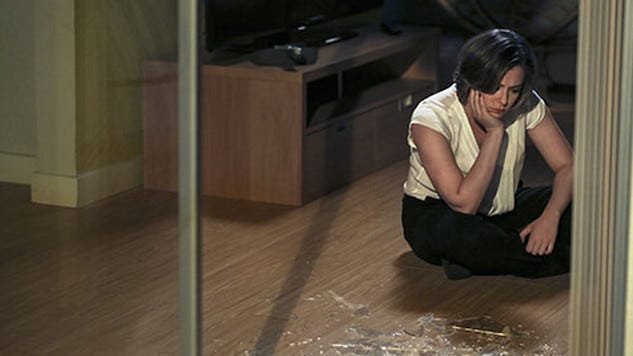
Crazy Ex-Girlfriend is so good at so many things, from wacky sitcom hijinks to showstopping musical numbers to serious explorations of mental illness — and it’s always at its best when it manages to seamlessly combine all of those elements in one swoop. Perhaps the best example of that was the sublime “That Text Was Not Meant For Josh!”, which may be the show’s darkest and finest hour. The episode finds Rebecca in her most perilous Josh situation yet (she accidentally sent him a text admitting that she moved to West Covina because she was desperately in love with him) bringing her to her most drastic invasion of Josh’s privacy yet (she breaks into his apartment to find his phone and delete the text) and, after he catches her, her most over-the-top lie to cover her ass yet (she pretends that she was in his apartment because someone broke into hers and she needed to be somewhere she could feel safe.) She manages stages a break-in with the help of Paula and her husband, and while the break-in and Rebecca’s scheming are well-executed comic bits that earn plenty of laughs (that Textmergency number!!!), it all inevitably comes crashing down, and Rebecca finds herself in a spiral of self-loathing that culminates in the show’s most cutting and heartbreaking musical number yet (“You ruined everything, you stupid bitch” Rebecca sings to herself.) There are so many plates being spun here, and the fact that Crazy Ex-Girlfriend absolutely nailed all of them demonstrates why it was one of TV’s best shows in 2016.
Broad City — “Burning Bridges”
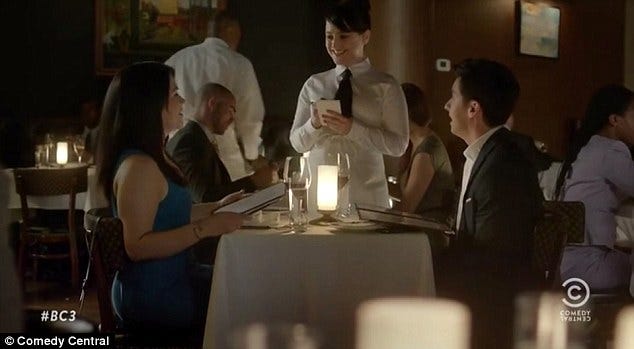
The ever-reliable Broad City took some surprising risks in 2016, and it resulted in a season that wasn’t quite as consistent as its first two but pushed the show in some exciting and intriguing new directions. The best example of that was arguably the “Burning Bridges” episode, which is the only episode of Broad City that may be more notable for its emotional elements than its comedy (although it had plenty of great comedy as well in its Mrs. Doubtfire homage.) “Burning Bridges” finds Abbi on a secret date with lovable douche Trey, but when she winds up at the same restaurant as Ilana and her family (who she turned down previously), Abbi has to scramble to keep her cover. Of course, she doesn’t, and it ends with the only major Abbi/Ilana rift that we’ve seen on the show thus far. Of course, it’s remedied quickly, but the same can’t be said for Abbi and Trey’s relationship, which ends on a surprisingly sad note. Kudos to Broad City for expanding its dramatic palate a bit more and totally landing it, without losing what made it great in the first place.
The Americans — “The Magic of David Copperfield V: The Statue of Liberty Disappears”
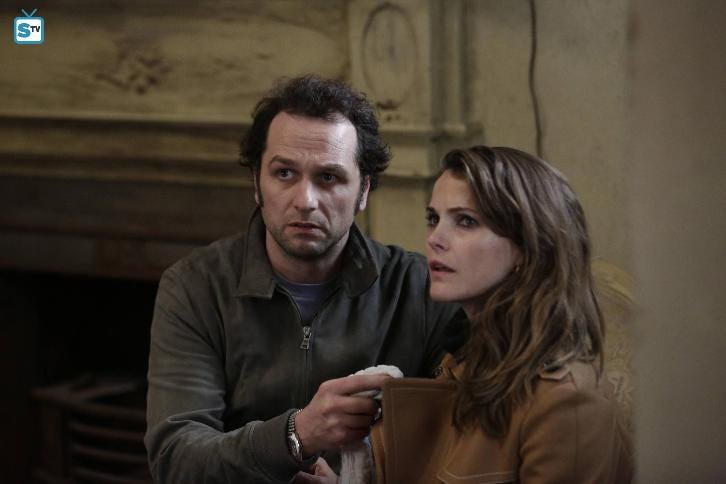
The Americans has gotten more tense and foreboding with each season, but this season felt particularly pressing: between the sudden execution of Nina, the FBI finding out about Martha’s ties to the Russians followed by her shuffling off to the Soviet Union, Paige blowing her parents cover with Pastor Tim, and Phillip and Elizabeth often finding themselves at odds over their plan for their families’ safety, the pressure just didn’t stop mounting. So this late-season turning point, in which the Jennings take a break from their spy work and the show time-jumps seven months to show them at the other end of a length vacation, was both refreshing and kind of devastating: on one hand, it was nice that our Soviet protagonists got some time off, but the way all of their happiness happened off-screen and we had to dive back into the trenches with them at the other end demonstrated how their stress and turmoil are never really over. The Americans is all about the concept of sacrifice and how far you’re willing to go for your cause, and it’s increasingly feeling like the Jennings are going to have to make a tough decision between their family’s livelihood and their country very soon.
BoJack Horseman — “That’s Too Much, Man!”
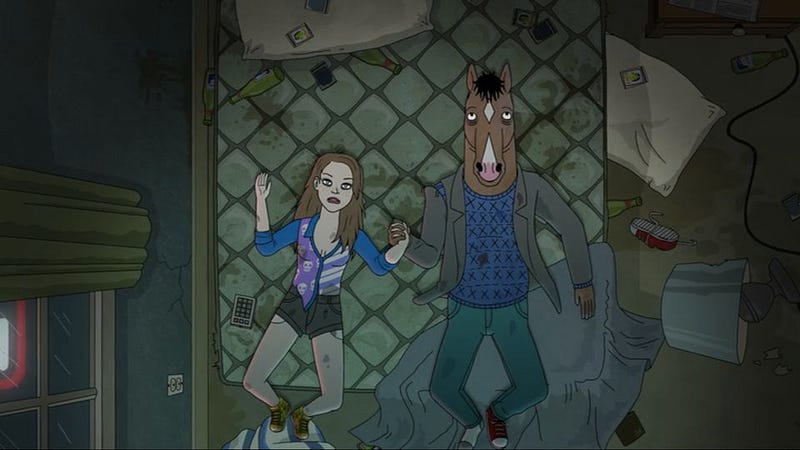
Most of the “best episodes” lists I’ve seen pick the largely silent “Fish Out of Water” episode to represent BoJack’s stunning third season, and while I mean no disrespect to that incredible episode (which was a masterclass of animation that could easily hang with the best of Pixar, come at me), the one that continues to haunt my dreams is the season’s penultimate episode, “That’s Too Much, Man!”. It has become a pattern for the penultimate episode of a BoJack Horseman season to completely break your fucking soul (Season 1’s “Downer Ending” saw a torn BoJack begging Diane to tell him that he’s a good person, Season 2’s “Escape from L.A” saw BoJack reach the point of no return after being caught in bed with his old friend Charlotte’s teenage daughter), but even then I still wasn’t prepared for this episode to break me as much as it did. “That’s Too Much, Man!” follows BoJack’s weeks-long bender after he misses out on an Oscars nomination, but the focus is really on his former TV daughter Sarah-Lynn, who is newly sober after several years of drug addiction…until BoJack convinces her to join him on his spiral. The two travel around visiting various characters that BoJack has wronged over the course of the show’s run, from Diane and Mr. Peanutbutter to Angela to, yes, good God, even Charlotte’s daughter Penny…but it all comes to an abrupt end in a planetarium, after Sarah-Lynn fatally overdoses on a batch of heroin appropriated named “BoJack.” The episode is such a gutpunch that five months after watching it, I still don’t feel totally emotionally recovered. (If you want to be even more devastated, rewatch Sarah-Lynn’s first episode in Season 1 and notice all of the heartbreaking parallels between that episode and this one. Or don’t. You’ll be very, very sad.)
You’re the Worst — “You Knew it Was a Snake”
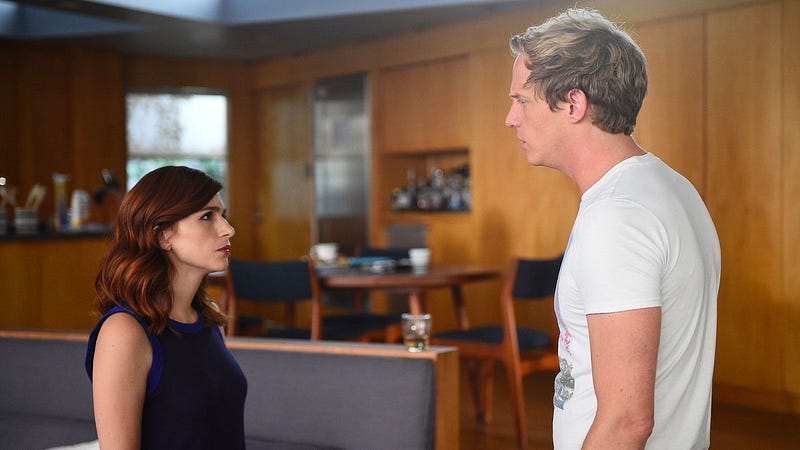
This is another one where I’ve mostly noticed lists championing one particular episode (“Twenty-Two”, and rightfully so, given its deft exploration of Edgar’s PTSD) so I figured I’d throw some love to an episode that I’ve seen get less attention but I thought was just as great. This episode, aired as the first part of a two-part season finale, felt more like a stage play at times than a sitcom episode: it took the show’s three central couples, locked them each in a room together, and set them up against each other, highlighting all of the problems that have been mounting between them over the course of the season. It was thrilling, honest, funny, and heartbreaking, which at this point should be expected from this show, but it still manages to knock me off my feet every time it pulls off an episode like this. Season 3 may have had less of a clear narrative structure than past seasons, but it still knocked it out of the park when the moment counted, and this episode was a perfect example of that.
black-ish — “Hope”
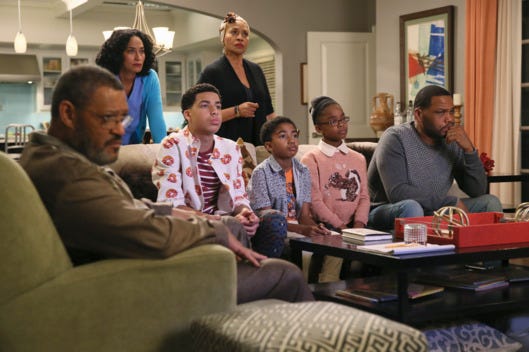
black-ish has done an incredible job over the course of its three seasons of mixing heavy racial issues with primetime-friendly family sitcom hijinks, making it one of the most essential network television sitcoms in several years. There is perhaps no better example of this than this year’s “Hope”, which tackled the subject of police brutality head-on as the Johnsons watched as another police officer failed to be convicted of shooting an unarmed black man. “Hope” is heavy and heartbreaking, just as it should be, but it never crosses the line into treacly. A comic runner about the Johnsons struggling to decide what to order for take-out helps things from getting too dark and also makes it feel like an actual family grappling with this issue, rather than mouthpieces for TV writers. The tightrope act that black-ish walks is one of the most difficult on TV, so the fact that it gets it right so often and produces episodes as fantastic as “Hope” is a seriously impressive feat.
The Good Place — “…Someone Like Me as a Member”

The Good Place was funny and intriguing from the start, but over the nine episodes it’s aired so far it has grown from being “fun and promising” to “a surprisingly thoughtful, deep analysis of some of the most complex questions about the afterlife and destiny.” It’s also a really funny sitcom, with a very talented cast and some excellent joke writing and pitch-perfect comic bits. The show’s midseason finale is perhaps the best example of that delicate balance — it’s an incredibly funny episode with some hilarious bits (such as the amazing cactus runner and the “Nixon karaoke” scene, which gave me some of my biggest laughs on TV this year) but also brings all of the philosophical questions the show has been posing (like “is there such a thing as soulmates?” and “is the concept of good and evil really fair?”) to a head. It sounds like it’s impossible to pull of, and it’s pretty damn hard, but The Good Place has been nailing it so far.
Bob’s Burgers — “Glued, Where’s My Bob?”
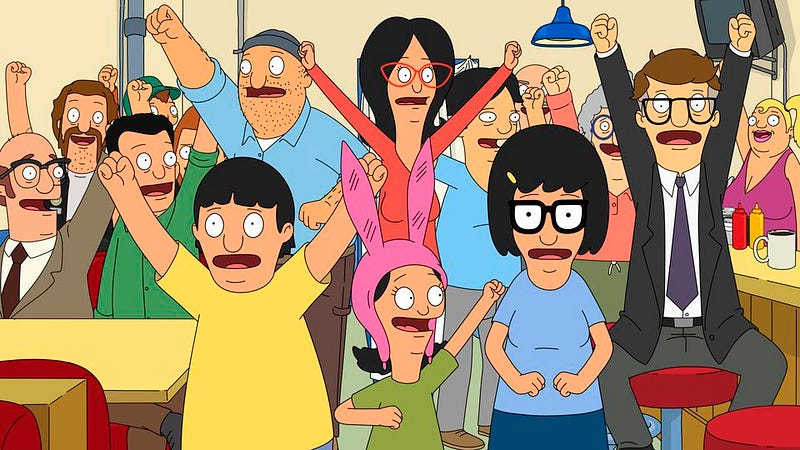
Bob’s Burgers hit 100 episodes this year, and the show’s 100th (or advertised 100th, anyway) episode was a great example of why it remains one of TV’s most consistently delightful shows. “Glued, Where’s My Bob?” takes a ridiculous situation (Bob literally gets glued to a toilet on a day when a magazine is supposed to tour the restaurant) and turns it into a half-hour of top-notch jokes, catchy songs, and surprisingly resonant warmth. It was reminiscent of some of the earliest Bob’s episodes (which often revolved around something going horribly wrong for Bob during an important moment) but showed how far the show has come since those days by peppering in all of our favorite recurring characters and ending in a sweet, warm place. Bob’s Burgers may not be the shiny new thing on the block anymore, but there were few shows in 2016 that made me happier.
Atlanta — “B.A.N.”

It’s difficult to pick just one episode of Atlanta for this list, which tried on so many different tones and styles in its breakthrough first season and pretty much nailed them all. There are so many things that excite me about this show, but one of the best and most surprising aspects of it how it was willing to be a completely different show from week-to-week (not unlike the community college-based sitcom that Donald Glover hailed from.) “B.A.N” was perhaps the best example of that, as the show took a break from the whimsical, dreamlike season of narrative TV it had been up to that point to completely nail a Chapelle’s Show-style takedown of entertainment panel shows. Paper Boi’s reaction shots in this episode alone are probably one of the funniest things you’ll see all year, but the entire episode is some perfectly executed comedy. It bears almost no resemblance to the show it was in every other episode (although it still has the show’s signature surreal absurdism and subtle social commentary), but that’s what makes it so damn fun.
Insecure — “Real as F**k”
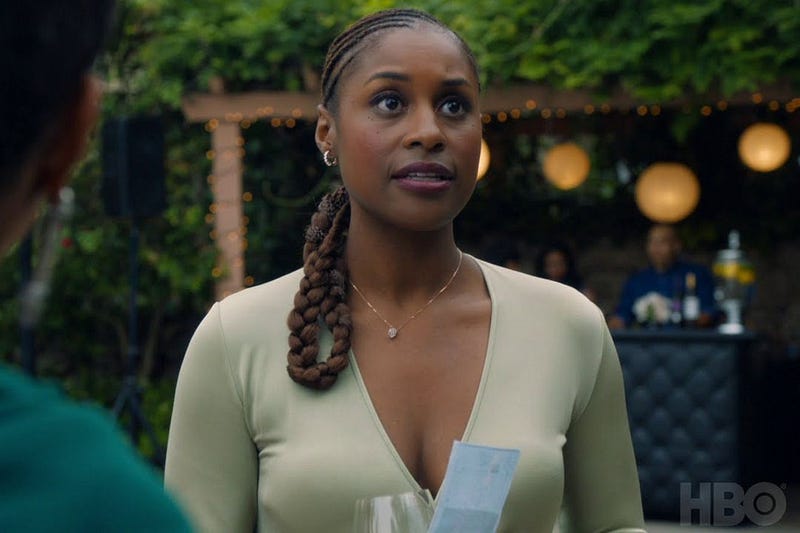
The first season of Insecure was the definition of a slow burn. It started off seeming like a funny, light dramedy with well-defined characters and a lot of genuinely funny dialogue, but it slowly revealed itself to be even more than that, as it subtlety dug deep into its lovable cast of fuck-ups and revealed their inner-most desires and flaws. Insecure slowly peeled away at each of its central relationships until they all finally came to blows in the season’s penultimate episode “Real as F**k”, which followed Issa to her first successful work project in quite some time but found every other aspect of her life falling apart. “Real as F**k” dealt with the fallout of the revelation that Issa cheated on Lawerence with her college sweetheart in appropriately gut-wrenching fashion, but perhaps the most emotional scene came from her coming to blows with her best friend Molly, as the two people whose friendship provided the backbone of the series hurled insult and after insult at each other. What’s especially great about Insecure is the way it doesn’t paint any of its characters as right or wrong, even as they do undeniably misguided things — its empathy for each of its characters’ flaws and fuck-ups is what made Insecure one of the best new shows of 2016.
Unbreakable Kimmy Schmidt — “Kimmy Meets a Drunk Lady!”
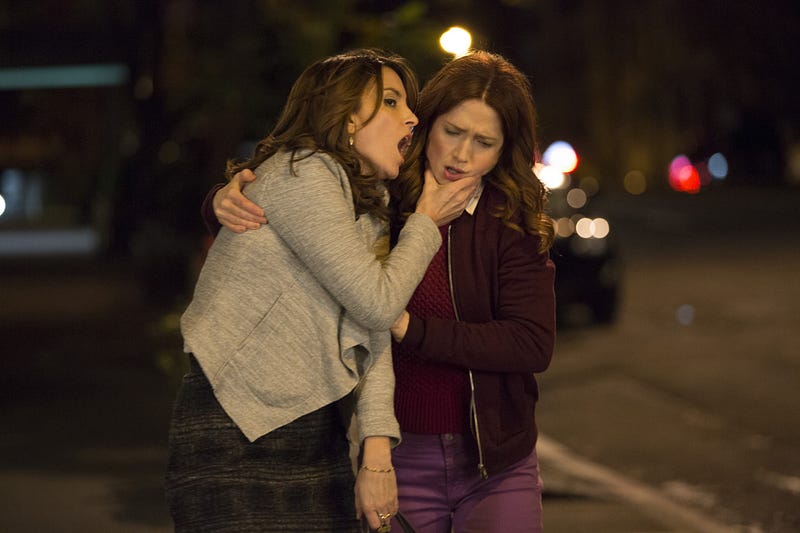
Unbreakable Kimmy Schmidt’s second season took a little bit to get off the ground, but once you got past the tone-deaf “address the critics” episode, you’ll find a season that’s actually even better, funnier, and more poignant than its first. While Season 1’s designed-for-network-TV status kept it from fully addressing the darkness of the show’s premise, Season 2 had no such restrictions, and while the show didn’t necessarily plunge straight into the pitch black, the way it dug into Kimmy’s trauma in the back half of the season was genuinely brave. The introduction of Tina Fey as Andrea, Kimmy’s alcoholic therapist who is a completely different person during her drunken nights than her professional days, was a seriously winning addition, both as a great comic character and a stark reminder that Kimmy’s desperate need to “fix” everyone around her has some dark undercurrents. Plus, this is the episode that gave us all of those fake “Now That’s Sounds Like Music!” songs, so…
Orange is the New Black — “Toast Can’t Never Be Bread Again”
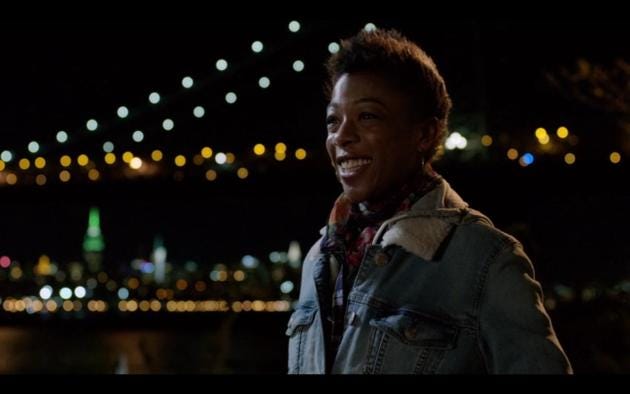
The reactions to Orange is the New Black’s heartbreaking death this season were incredibly mixed, but it’s hard to deny the power of Poussey’s final tribute in the season finale, which mixed the aftermath of her murder with a beautiful, joy-bursting adventure with her around New York City prior to her arrest. The finale does a great job of showing why the character was so beloved and just why the outcry over her death was so extreme — this was one of the warmest characters not just on Orange is the New Black but on television in general, and Samira Wiley’s portrayal of her was truly magnificent from start to finish. Even if I understand why Orange felt the need to use her death as a way to comment on social issues (whether or not it was successful is up for debate), it’s hard for me to accept that she’s actually gone, and Orange is the New Black — and its characters — will never be the same without her.
Veep — “Mother”
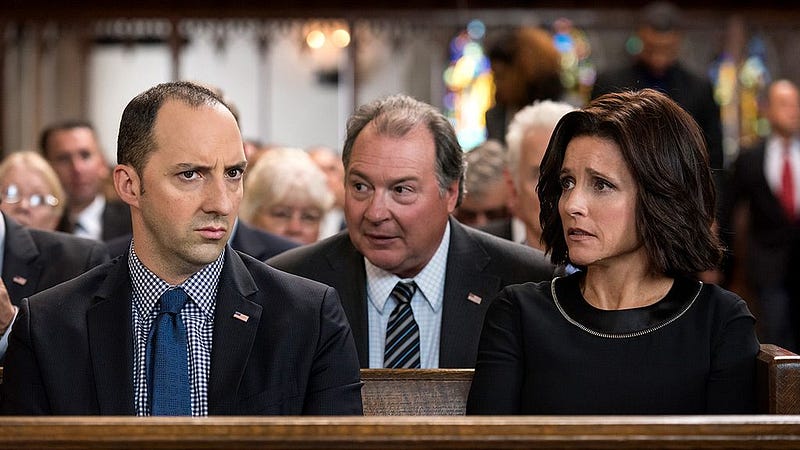
Veep’s fifth season didn’t miss a beat despite losing its showrunner, and “Mother”, in which Selina says goodbye to her mother in the midst of a bitterly contested election, is a perfect example of just how biting, caustic, and hilarious the show is when it’s working at its ultimate best. Considering the horrific track of politics this year, it would be easy for Veep to stop seeming like a funny comedy and start seeming like a horrifying documentary, but luckily Julia Louis-Dreyfus’s flawless performance manages to keep things hilarious even when they’re feeling a bit too real. “Mother” serves as both a political takedown and a character study, as Selena uses the death of her (cold, distant) mother to her political advantage while showing little actual emotion at her mother’s passing. It’s a little too real, maybe, but also, it’s just really funny.
Mr. Robot — “ eps2.6_succ3ss0r.p12”
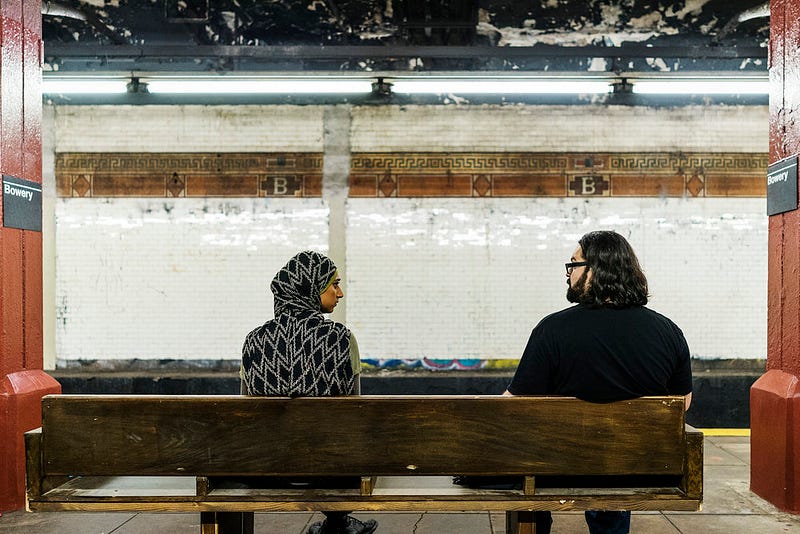
Look, there’s no denying it: Mr. Robot’s second season was a giant fucking mess. It was strangely plotted, had too many unanswered questions, and seemed more concerned with tricking its audience than actually developing a compelling storyline. Still, there were some really good moments among the ruins that made the season a worthwhile endeavor despite its weaknesses. One of those was moments was the “Successor” episode, which almost completely sidelined Elliot and focused on the show’s supporting cast (which, no disrespect to Rami Malek’s continued great performance, carried the show this year.) The episode hones in on Darlene, and its focus on her attempts to be a leader shed a light on both her character and the importance of Elliot as this universe’s center. It’s also an episode that’s heavy on the dark moodiness that the show continues to do well: Season 2’s strengths lied in the way it portrayed the post-hack world as dark, unforgiving, and not what anyone really asked for, even if fsociety had technically “succeeded.” Even if this season was kind of all over the place, there was enough good in it that I’m still on board to see where this goes next year.
The Chris Gethard Show — “One Man’s Trash”
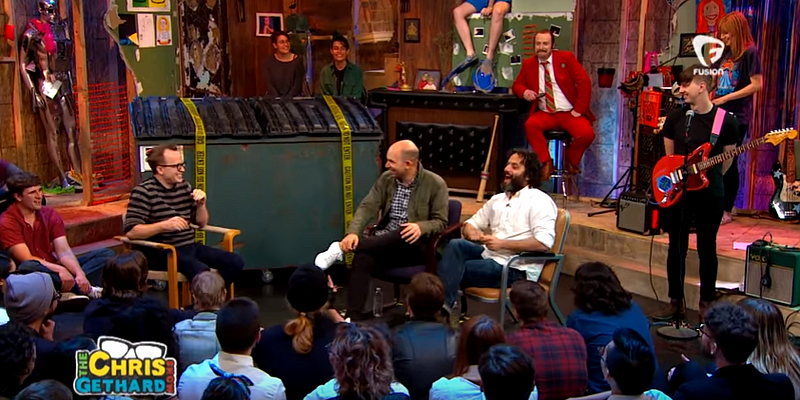
The Chris Gethard Show has been quietly producing some of the best, most innovative TV for several years now. What started off as a weekly public access show centered around a bunch of misfit comedians connecting to lovable weirdos around the country has seamlessly transitioned to cable via the Fusion network, and while the show’s first Fusion season was good, it did take some adjusting into its brighter lights and higher budget. The show’s second Fusion season, though, produced some of the best, weirdest, most surprising material it’s ever cranked out, and the very best of it was what’s referred to as “the dumpster episode”, which has a very simple concept: Paul Scheer, Jason Mantzoukas, and the viewing audience have to guess what’s in the dumpster on stage. I don’t want to spoil anything, because the episode is a genuine thrill ride from start to finish. (I was lucky enough to be in the audience for this episode and I can confirm that it was probably the highest-tension live show I have ever seen.) Just go in with an open mind and prepare to have your mind blown by the end of it.
Okay and HERE'S my full top 20 list:
1. BoJack Horseman 11. You're the Worst
2. Crazy Ex-Girlfriend 12. The Good Place
3. Atlanta 13. Orange is the New Black
4. The Americans 14. Veep
5. black-ish 15. Broad City
6. Lady Dynamite 16. Search Party
7. The Chris Gethard Show 17. Bob's Burgers
8. Unbreakable Kimmy Schmidt 18. Stranger Things
9. Insecure 19. Better Call Saul
10. Superstore 20. Full Frontal w/ Samantha Bee
